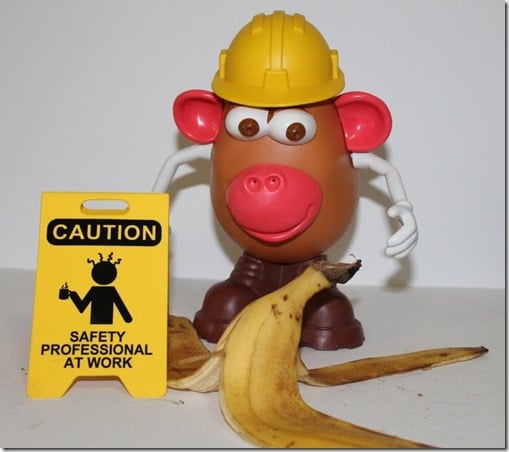Originally posted on February 25, 2017 @ 8:48 AM
The Mis-naming of Safety as a Profession

Just because one practices an activity in a certain area/discipline doesn’t make one a ‘professional’. A profession designates a deep level of knowledge and maturity in thinking, sadly lacking in the world of dumb down (https://safetyrisk.net/isnt-it-time-we-reformed-the-whs-curriculum/ ). The notion of a ‘profession’ is not to be confused with the act of ‘being professional’ which implies a clarity in principles, practice and ethics. But sadly here too, Safety is also lacking (with no study of ethics in the WHS curriculum).
There are many indicators of not being professional and Safety seems to have many of them. The idea of comparing the activity of safety with the professions like teaching, engineering, law and nursing is nothing short of entertaining. There is no way one could compare a curriculum in a Diploma in WHS (training) as being a process of ‘education’. And, until the curriculum is reformed (https://safetyrisk.net/knowledge-and-curriculum-for-risk-and-safety-people/) there is little chance that one could consider a safety person as being ‘educated’.
The activity of safety is characterized by many indicators of immaturity these are:
- The ritualization of blame and punishment
- The consuming fixation on lower order goals (zero)
- The illogical and irrational adoration and attribution of meaning to numerics
- Absurd logic in demanding absolutes from fallibility
- The preoccupation with objects
- Self-definition by regulation
- Compliancing mentality
- A profound lack of creativity, imagination, innovation and critical thinking
- Climate of policing and discourse of power
- The denial of complexity
- Checklisting and ‘tick and flick’
- Systematised defensiveness
- Collating and collecting paperwork as effective action
- Recording and Reporting as its central activity
- Data Collecting as meaningful
- Little focus on ‘helping’ and service’
- No vision by peaks for any curriculum reform
- A lack of respect for the activity of safety
- Duplicity with the law
Many of these indicators of immaturity are not present in real professions. If you want more information on the professions perhaps Lester offers some helpful insights (http://devmts.org.uk/profnal.pdf ).
The idea of a profession is tied to its etymology, ‘to profess’. So, what does Safety profess? What is its ethos? The list above is telling. As long as the activity of safety professes ‘zero’, it can never be a profession. Zero now commands the discourse of safety with religious fervour with such absurdity. Demands for ‘zero incidents’ and ‘zero compromise’ make safety the laughing stock of the professions (https://safetyrisk.net/alarp-the-regulator-and-alt-facts/ ). Of course, zero and absolutes also drives bullying which is anti-professional. Zero will accept no criticism, any dissent (including this blog) must be named as evil and anti-safety, whereas the professions accept critical thinking in their ranks as healthy. The professions know that maturity advances under the acceptance of critical thinking.
So what is the challenge ahead? Talking about safety as ‘a profession’ and branding safety activity as ‘professional’ is important. Semantics is important (another indicator of safety immaturity). Safety is known for its dismissiveness of semantics. The criticism of ‘that’s just semantics’, is often used in safety to dismiss its validity. So, language is important and the speaking of safety as a ‘profession’ contributes to highlight it’s extensive list of contradictions. People see what Safety does and hear what Safety says and are then put into dissonance by the demand to be recognized as a profession.
So, at the moment it is best to refer to safety as an ‘activity’, an ‘industry’ or a ‘trade’. We can do this whilst still emphasizing that safety people need to behave professionally (ethically and respectfully).



Do you have any thoughts? Please share them below